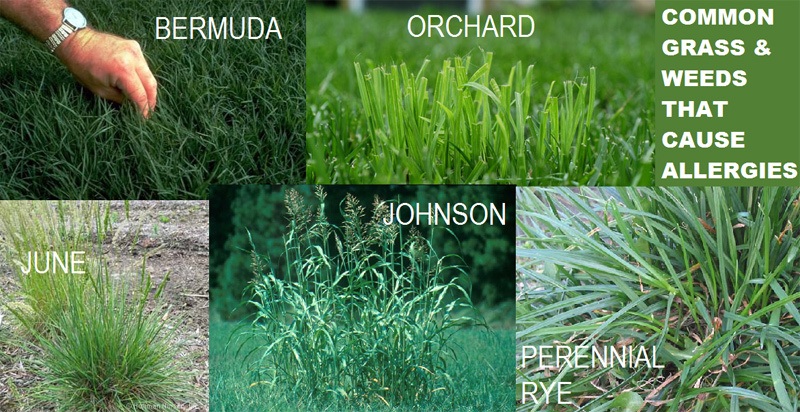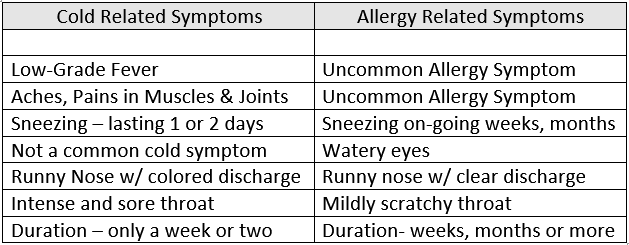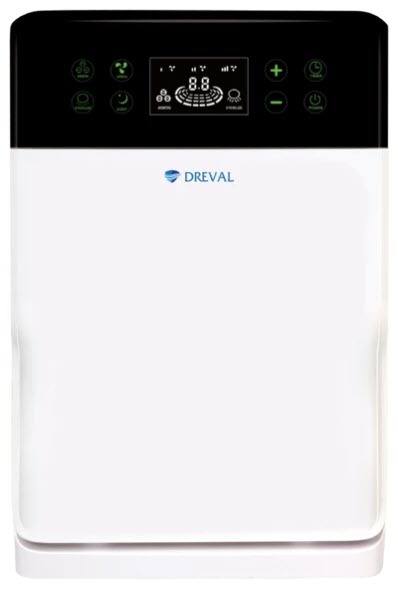- You are here:
- Home »
- Blog »
- Natural Solutions »
- Helping Seasonal Allergies With Natural Remedies and Nutrition (Part 3)
Helping Seasonal Allergies With Natural Remedies and Nutrition (Part 3)

According to the American Academy of Allergy, Asthma & Immunology (AAAAI), up to 40 percent of adults worldwide have allergies, including seasonal allergies as well as other allergies.
In the U.S., 14 percent of adults and 13 percent of children have physician-confirmed seasonal allergies, according to treatment guidelines published last year in the Annals of Allergy, Asthma & Immunology.
However, in addition to spring pollen related allergies (hay fever), there are also summer related allergies as well. For some, seasonal allergy symptoms continue their assault into the summer.
Summer Seasonal Allergies
There is some difference in cause between seasonal allergies when it comes to causes originating from natural sources. Spring may be the most prevalent allergy season but as some seasonal allergy sufferers well know, summer seasonal allergies also exist.
Summer allergy sufferers experience intensified symptoms in the summertime rather than the spring mainly due to varieties of common summer grasses. Certain types of grasses which are prevalent in the summer season can serve to trigger allergy symptoms, Grasses such as:
- Rye
- Timothy
- Orchard
- Bermuda
The allergy symptoms will be very similar to what you have with spring allergies, but may continue all summer. Of course, allergens like mold, pollen and food related allergies can still affect you well into the summer and, in fact, year round also.
Hence, one thing to take note of is the seasonal aspect when attempting to determine the allergy symptom cause.
If the symptoms, which we will take a closer look at next, are not seasonally related, your allergy triggers may be mold, insect or food related.
Symptoms of Allergies
Not sure if what you are experiencing is allergies? There are common signs and symptoms of an allergy attack, but some of the same symptoms can also occur with other illnesses.
It is more about a combination of symptoms, while not having signs of illnesses like a cold or the flu, which might point toward allergies.
Some of the more common symptoms of seasonal allergies include:
- Watery eyes
- Itchy eyes
- Runny nose
- Stuffy nose
- Sneezing
- Ear problems
- Itchy throat
- Skin rashes (itchy or otherwise)
Additional symptoms related to allergen triggers may also include:
- Recurring Headaches
- Dizziness
- Nausea or vomiting
Cold or Allergy Symptoms?
However, sometimes the symptoms may reflect a seasonal cold rather than an allergy. The following comparative list will help you distinguish between the two symptom complexes to determine if they are allergy or cold/flu related symptoms:

Allergy specialists and doctors will refer to seasonal or on-going symptoms such as the above to pin your health issue down to either an allergen or some other health issue. You can do the same.
Now, let’s take a quick look at how allergens are diagnosed which will further help you pin down your potential causes.
Diagnosing Allergies
To diagnose allergies, doctors will use a combination of methods.
- Determining your symptoms, and ruling out other causes such as pointed out above, like the common cold.
- Taking blood samples for allergy tests.
- Doing skin surface allergy tests.
Many experts in the allergy field of study recommend a full disclosure of medical history. This helps them determine the type of testing that will be used which are chosen based on factors including age, occupation, symptoms, level of exposure, and even hobbies.
If you fall into the allergy symptom complex, rather than the cold/flu complex, further tests may be employed to pin your allergen down to a seasonal, natural cause rather than a food, mold, pet related or other cause.
A qualified doctor will be sure that the methods they employ are the most effective, rather than use a trial and error method.
Once the doctor has determined what factors may be causing your allergies, they will most likely develop a personalized plan to help you combat your allergy symptoms for maximum relief.
Common allergies may be often a mild health condition to experience. However, it is still a good idea to see a doctor if over-the-counter or natural meds are not working, or if you are just not sure if what you’re dealing with is actually from seasonal or other allergen causes.
If the symptoms are more severe, such as painful rashes or trouble breathing, it’s best to seek medical attention right away. You don’t want to chance an anaphylactic shock incident which could be fatal.
Treatments Used
The good news is that there are many options available to you if you suffer from seasonal allergies:
- Over-the-Counter Medications
- Prescription Medications
- Natural Remedies (As effective, maybe even more, with less or no side effects.)
- Environmental Remedy Aids
Here is a look at the main methods for treating allergies and allergy symptoms:
Over the Counter Medication
If you are struggling with your allergy symptoms, there are many over-the-counter remedies that are available at any drug store. These can be a quick and affordable option, yet effective.
Medications of this type are quite popular because they can be purchased with relative ease, and don’t require you to see any type of medical professional.
Most of them are typically focused on blocking the histamine levels in your blood. This should help you to experience fewer of the symptoms associated with allergies.
However, because of the common side effect of drowsiness, make sure you take them safely and only as directed.
Prescribed Medication
For those with more severe allergies, or whose bodies don’t react well to the over-the-counter options, you can also talk to your doctor about prescribed medications
These can include oral pills, but they can also be allergy shots designed to help suppress your immune responses. Many doctors will also prescribe medicated nasal sprays that are aimed at limiting nasal congestion and irritation which can also be relatively effective.
Environmental Remedies
There are also some natural options available to you. A portion of these remedies are related to making changes to your environment rather than changes to your body.
As natural remedies have few, if any, side effects it would be helpful to employ both ends of the spectrum, as well as consider some nutritional intake changes as well. Since there is very little, if any, health risk- it would seem prudent to employ as many remedies as possible to address your symptoms.
Natural remedy options can be as simple as replacing your air filters with hepa filters so that you can have a more efficient ability to filter pollen out of your air system of your home.
People often find that keeping the windows closed during those times of year can help reduce the amount of pollen coming into the home, especially during the latter part of the day when pollen is more air borne.
You can also employ a room air purifier to help filter out allergens. Below are some highly rated but economic choices for use in a primary room or bedroom during sleep. High efficiency, yet light enough for portability to move from room to room if desired.
The Dreval HEPA 6 Stage Air Purifier D-903 offers portability yet a 6 stage system that offers the same protection as the D-950 but without the humidifier function.
The 6 stages of the Dreval include:
- Cold catalyst filter (clears harmful gasses like formaldehyde, 2nd hand smoke, benzene, ammonia, pets and others)
- Cellular-activated carbon filter (dust collection)
- Anti-bacterial filter (to 5 microns)
- High efficiency HEPA filter (to .03 microns dust, bacteria, fungi, viruses and other allergens)
- Negative Ions (Does not produce Ozone)
- UV light (additional bacteria and odor elimination)
Bedding protection against dust mites, bed bugs and other allergens may also be helpful in providing secure, allergen protected rest.
It’s always a good idea to remove and wash your clothes as soon as you get home, then take a cleansing bath or shower to get the pollen off of your body so that it doesn’t spread all over your home.
Vacuuming and washing bedding a few times a month will help reduce both pollen and the presence of mites and bed bugs which could cause irritation. Additionally, so it’s always a good move to keep your bedroom clean and free of debris.
Vacuums should also be hepa allergen filtered to complete your protection, especially during high allergen periods in the case of seasonal allergies. There are bagged and bagless models available which are cost effective and rated highly for efficiency.
Your diet can also play a role in your allergy symptoms and how you experience them.
Natural Remedies
Some experts have made claims that eating local honey can help people to deal with their symptoms, but empirical evidence is lacking to recommend this as a blanket remedy.
On the other hand, there are a number of herbal teas that are capable of limiting the symptoms you experience. While effectiveness is still an issue, they are likely just as effective as conventional over-the-counter remedies with less, if any, side effects. Herbal remedies generally include: milk thistle, red clover, yarrow and nettle and/or other complementary herbs.
Nasal irrigation is known to be effective remedy because nasal irrigation is an effective mechanical way to remove allergens from the nasal cavity. This is often recommended to people who have serious issues with their breathing and allergy symptoms.
During nasal irrigation the saline solution flushes through your nasal cavity washing out the pollens and other allergen from your breathing areas. This can help stop some allergy symptoms simply because the irritants are no longer present in the sensitive nasal passage membranes.
There are also natural substitutes for the conventional over-the-counter remedies like Claritin that can be taken for relief without the drowsiness.
Allergies Don’t Have to Be a Lifelong Sentence
What allergy sufferers need to know is that they are not locked into the conventional treatment methods which includes over-the-counter remedies with side effects or that may not be working for them.
Costly and time consuming visits to your allergy specialist don’t have to be your last ditch alternative.
Contrary to commonly held beliefs, nature is not your enemy. By making different lifestyle choices, internally and externally, you can mitigate and possibly overcome your allergy symptoms.
This 3 part series advances some suggestions and points of view that offer alternatives to a belief that you are locked into a lifelong sentence of being allergic. The primary change lies in your choices and motivation to make the effort to select natural lifestyle changes.
It will take some experimentation and effort. Neverthelesss, the elimination or reduction of allergy symptoms forever will be a reward well worth your efforts.
Read Part 1– Seasonal Allergies – Spring and Hayfever and more
Read Part 2 – 3 Myths of Allergies
Related Posts
Helping Seasonal Allergies With Natural Remedies and Nutrition (Part 1)
Should You Take Drugs to Cure COVID-19?
Free Survival Nutrition Course – 8 Hours Plus PDF
Is Holistic Oral Care a Forgotten Part of Your Natural Health Treatment Plan?
What’s For Dessert? Superfood Fudge
8 Common Herbs With Amazing Health Benefits
Four, No-Cost, Natural Life Hacks for Creating a Healthier Emotional State
The Secrets of Sugar – A Canadian Broadcast Presentation


